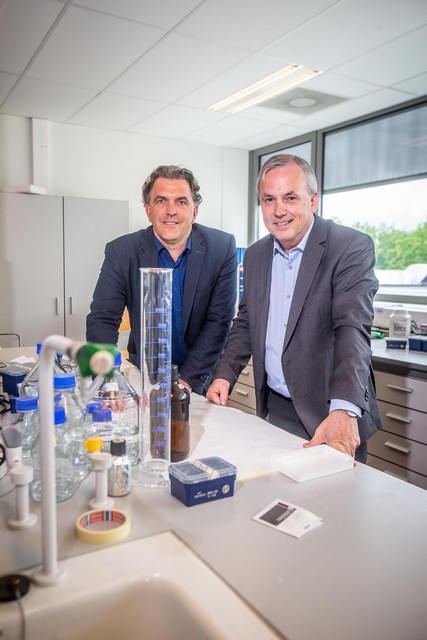Glandular fever is also called kissing disease or kissing disease, the infection often occurs through saliva. — © AP
–
People who had mononucleosis are 32 times more likely to develop MS, research shows. “It is very important to study this further,” says MS specialist Piet Stinissen of Hasselt University. “The exact cause of MS remains unknown.”
–
Karel Moors
—
Harvard researchers analyzed blood samples taken from ten million American soldiers over 20 years. 955 of those servicemen developed multiple sclerosis (MS). The blood analysis showed that all of those people except one previously also had an infection with the Epstein-Barr virus (EBV), the virus that causes mononucleosis. The infection often happens through saliva, which is why glandular fever also occurs kissing disease or kissing sickness. The results of the large-scale study have been published in the journal Science: Those who got an infection with EBV and thus contracted mononucleosis were 32 times more likely to get MS. In no other infection was that risk so high.
“Epstein-Barr has long been on the list of viruses that we suspect may be linked to MS and now it has been shown”
Prof. dr. Piet Stinissen, MS-specialist UHasselt
Smoking gun
The discovery has been called a “smoking gun”, or irrefutable evidence. “I think it is now unequivocally established that there is a link between MS and EBV,” agrees Professor Piet Stinissen, immunologist and MS specialist at Hasselt University. “Epstein-Barr has long been on the list of viruses that we suspect may be linked to MS and now it has been shown. The numbers are striking.”
 –
–Prof. dr. Piet Stinissen. — © Karel Hemerijckx
–
“But like many studies, this opens up new questions,” Stinissen continues. “We don’t know the exact cause of MS yet. Because by no means everyone who is infected with EBV eventually develops MS. 90 percent of people have had mononucleosis, usually at a young age. You may be ill for a while, but that usually doesn’t cause a problem in the long run. So there must still be missing factors that contribute to MS. We have known for a long time that hereditary factors play a role, in addition to environmental factors. Now it is clearly very important to look further into EBV.”
Vaccine
In MS, your immune system attacks your own nervous system. This can lead to, among other things, loss of strength in the limbs, paralysis and reduced vision. There is no cure yet.
“But there are a lot of products that slow down disease evolution. One of those products is a substance that will suppress a certain type of B cells. One hypothesis is that B cells are infected by EBV, end up in the brain and play a role in the development of MS. It would be interesting to investigate this further,” says Stinissen. “In our University MS Center A study is being conducted in collaboration with the University of Liège, led by professor Niels Hellings and professor Bieke Broux, in which we look at the role of EBV on certain cells of our immune system with regard to MS.”
“On the other hand, it makes sense to have a vaccine against EBV, which is not yet available. We have now seen that we can make very strong vaccines with mRNA technology, such as the vaccines from Pfizer and Moderna against corona. Quite coincidentally, Moderna started a first study last week in the US on an mRNA vaccine against EBV.”
In Belgium, 90 people per 100,000 inhabitants suffer from MS. 450 people are diagnosed with it every year.
ALSO READ. Major expansion of Noorderhart: “Brand new rehabilitation and MS center in the backyard”
 –
–Professors Niels Hellings and Piet Stinissen from Hasselt University. — © Karel Hemerijckx
— .


